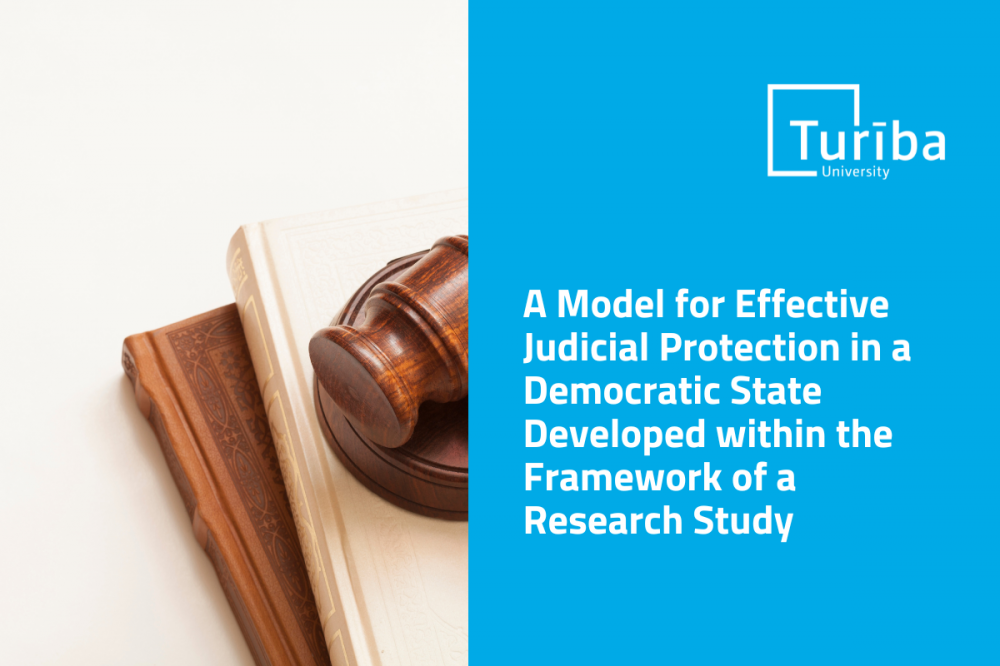NEWS
A Model for Effective Judicial Protection in a Democratic State Developed within the Framework of a Research Study

Judicial independence is one of the cornerstones of a democratic state governed by the rule of law. Despite frequent references to this principle in political and legal discussions, its content has not been systematically studied in Latvia until now. At Turība University, a doctoral thesis in law has been defended, analyzing the essence of judicial independence, uncovering its content by identifying the prerequisites that allow a court to judge objectively and fairly under any circumstances, and creating a previously non-existent yet functional definition of judicial independence that can be applied in practice.
In her doctoral thesis titled "The Content of Judicial Independence," author Laila Jurcēna has developed a unified understanding of the content of judicial independence, thus formulating a theory for the concretization and application of the general principle of judicial independence. The thesis identifies the immutable and mandatory requirements of judicial independence that are essential for ensuring judicial independence regardless of time or place.
The study concludes that the role of the court influences the content of judicial independence. Therefore, the thesis explores both the role of the judiciary as demanded by society and as shaped by the courts themselves in a democratic state governed by the rule of law. It identifies all dimensions of the court’s role: constitutional, political, social, economic, and legal. The research analyzes documents from European and international organizations, as well as rulings from constitutional and supreme courts of various countries. Particular emphasis is placed on decisions from the Constitutional Court of Latvia, and courts in Canada, Israel, Germany, and Italy, along with insights from the opinions of the Venice Commission.
Within the framework of the thesis, the author identifies two levels of judicial independence requirements — mandatory components and variable elements — distinguishes between permissible and impermissible influences, provides criteria for identifying threats, and proposes solutions applicable in judicial reforms, raising judicial qualifications, addressing court communication, and resolving ethical and disciplinary issues.
Various reforms are still being implemented within the Latvian judicial system with the goal of establishing an independent and accountable judiciary. The findings of this thesis are directly applicable in both the legislative process and the implementation of legal norms. The dissertation was developed at the Faculty of Law, Turība University, under the scientific supervision of Dr. Ph.D., Professor Ineta Ziemele, Judge at the Court of Justice of the European Union.
